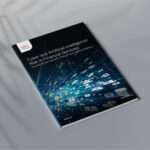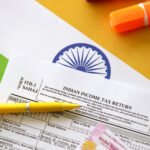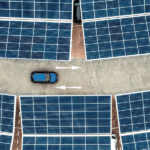In the pursuit of gender equality, addressing the financial literacy gap among women is vital for fostering economic independence and promoting inclusive growth. Despite progress, women around the world still face lower financial literacy levels compared to men, and they are also less likely to own bank accounts, especially in underserved regions. This gap not only affects their economic opportunities but also impacts their retirement security and long-term financial well-being.
The Need for Digital Financial Inclusion
The EDISON Alliance is working to close this gap through its mission to promote digital inclusion in finance, healthcare, and education. By convening public and private sector organizations, the alliance aims to empower underserved populations, particularly women, with the tools and knowledge needed to navigate the digital financial landscape. Here are five key projects that are making a difference:
- Axiata Group’s Digital Banking in Asia
Axiata Group, a leading telecommunications company in Asia, aims to improve the financial lives of 23 million people by 2025. It provides access to digital banking services and micro-credit for the unbanked, especially women entrepreneurs and rural educators. Along with telehealth services, Axiata is equipping women with essential digital skills to boost financial independence across the continent. - BBVA Microfinance Foundation’s Support for Latin American Entrepreneurs
In Latin America, where women face significant hurdles in starting and sustaining businesses, the BBVA Microfinance Foundation is working to empower over 4.5 million low-income entrepreneurs, primarily women, by 2025. By offering financial and digital skills training alongside transactional services, the foundation is helping to close the gender gap in entrepreneurship and foster sustainable economic development. - Grameen Foundation’s Digital Connections for Women Farmers
The Grameen Foundation is training 1,500 community agents across countries like India, Ghana, and Uganda to connect female entrepreneurs and smallholder farmers with digital services. This initiative is set to benefit more than 1.65 million underserved women by 2025, providing access to essential financial tools that can transform their businesses and communities. - Mastercard’s Commitment to Women Entrepreneurs
Mastercard has already brought 500 million unbanked individuals into the financial system and aims to do the same again by 2025. The company is also providing tailored business solutions to help 25 million women entrepreneurs grow their businesses, offering them the resources needed to succeed in a rapidly evolving digital economy. - VRG’s Financial Inclusion Efforts in Pakistan
Virtual Remittance Gateway (VRG) is working to close the financial inclusion gap in Pakistan by encouraging women to open mobile wallets and make low-cost e-payments. Through the Asaan Mobile Account Scheme, VRG has impacted 7.3 million lives in just 14 months, with 41% of new accounts opened by women. By 2025, VRG aims to reach 30 million people in Pakistan, significantly boosting women’s access to financial services.
Driving Change Through Collaboration
Bridging the financial literacy gap for women is essential for promoting gender equality and inclusive economic growth. Through partnerships with the private sector, NGOs, and public institutions, initiatives like these are creating scalable solutions to empower women and underserved communities. By providing women with the tools and opportunities they need, these efforts are paving the way for a more inclusive global economy.





